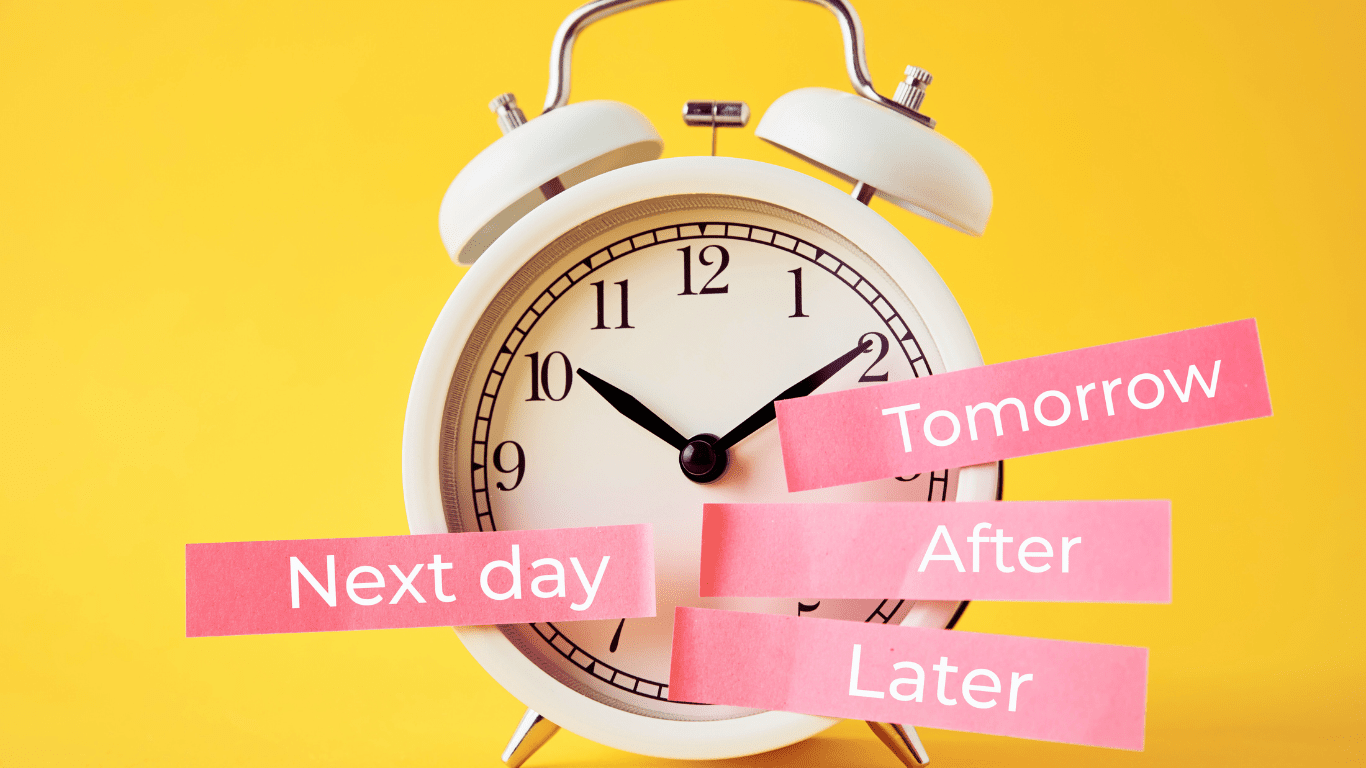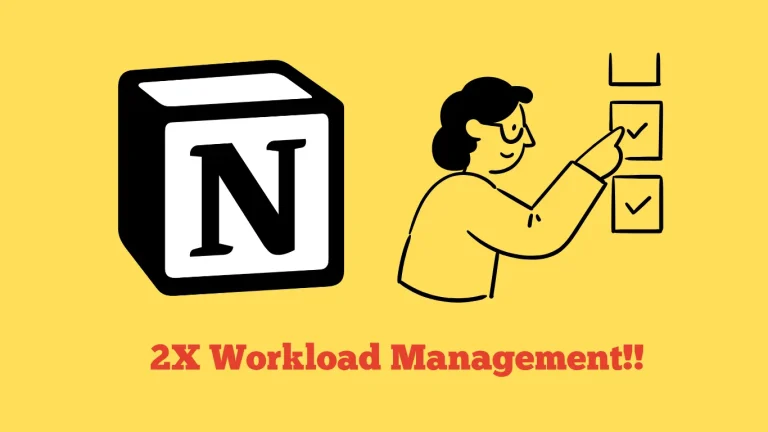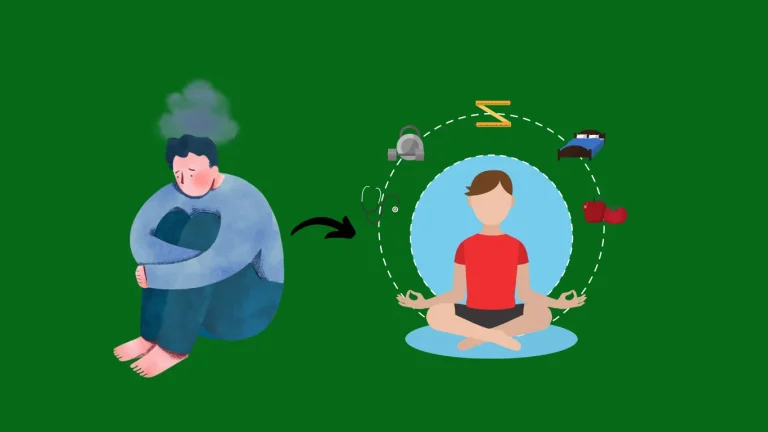Okay, let’s get real for a second. If you lived to 80, how many weeks do you think that’d be? Take a moment and think it over. Got it? The answer is 4,000. That’s it. Just 4,000 weeks. That simple, yet mind-boggling fact hit me hard when I read it.
The truth is, overcoming laziness and lack of motivation isn’t about forcing productivity. It’s about realizing that time is limited. Suddenly, you realize that procrastination isn’t just wasting your time—it’s squandering the most precious resource you have.
If you’re feeling unmotivated, it can seem impossible to get started. But when you realize how limited your time is, you might find that spark to act.
Instead of obsessing over the future, focus on the present. Embrace small, meaningful actions. Those little steps? They’re all it takes to kickstart your motivation and break free from the laziness trap, even when you are feeling unmotivated.
The Importance of Time and the FOMO Dilemma

We all know the feeling. You see everyone doing everything, experiencing more, and suddenly you think, I have to do it all. That’s FOMO—the fear of missing out. And it’s a real thing, especially when we’re constantly looking for more.
But here’s the thing: time is limited. We don’t have forever. When you accept that, it’s like someone turned the light on. You stop chasing everything and start choosing what really matters. FOMO doesn’t feel like a curse anymore. It becomes a reminder to focus on what’s truly meaningful, because there’s only so much time.
When you realize time’s not infinite, every decision counts. It’s not about doing everything. It’s about doing the right things.
The Efficiency Trap: More Isn’t Always Better

Ever felt like you’re running in circles trying to do more? The world today screams productivity—do more, be more efficient, squeeze every drop out of your day.
But let’s be honest: doing more doesn’t always lead to success. It just burns you out. We keep pushing for productivity, but here’s the truth: doing more spreads your energy thin, makes you unmotivated, and you end up feeling busy without actually getting anywhere.
The real game-changer? Focus. Narrow your attention to fewer, meaningful tasks. It’s not about getting everything done; it’s about getting the right things done. When you focus on quality over quantity, you start making real progress.
Procrastination: How to Be a Better Procrastinator

Let’s talk procrastination for a second. You’ve heard it’s the enemy of productivity, right? But hold up. What if procrastination isn’t the problem? What if the trick is to become a better procrastinator? Here’s the deal: you’re going to procrastinate. It’s inevitable. So, why not make it work for you?
Here’s how you can be a more effective procrastinator:
- Pay Yourself First (Prioritize What Matters Most)
Just like financial advice tells you to save before you spend, time management follows the same rule. Put your most important tasks at the top of your list. Even if it’s just 10 minutes a day, that consistent effort adds up. - Limit Your Work in Progress (Focus on Fewer Projects)
Multitasking? It’s overrated. Focus on 2 or 3 things at a time—max. When you give each task the attention it deserves, the results speak for themselves. - Resist the Urge to Tackle Lesser Priorities
We all have that endless list of to-dos. But not everything is urgent. Resist the temptation to cross off the easiest tasks just for the sake of it. Pick the ones that matter. Warren Buffet’s method? Write down your top 25 goals, then focus on just the top 5. Let everything else wait.
Procrastination doesn’t have to be your enemy. Use it to your advantage and make sure you’re procrastinating on the right things.
The Intimate Interrupter: Understanding Distractions

Distractions get a bad rap. But here’s the thing: they’re more than just annoyances. They’re a psychological tool, a coping mechanism we use to avoid discomfort. Whether it’s mindlessly scrolling through social media, binge-watching TV shows, or diving into trivial tasks, these distractions give us temporary relief from the emotional discomfort we feel when we face challenging or uncertain situations.
Oliver Burkeman calls this the “Intimate Interrupter.” It’s that inner force that steers us away from what really matters. And it’s not just about avoiding hard work—it’s about dodging the emotional discomfort that comes with it. The fear of failure, the anxiety of the unknown, or even the frustration of hitting our limits all trigger that need for escape.
But here’s the kicker: while distractions provide short-term comfort, they create long-term problems. Giving in to distractions over and over again means postponing the hard work that leads to success. It keeps us from focusing on our goals, leading to wasted time and unrealized potential.
To truly manage time and achieve our goals, we need to be aware of when distractions are pulling us in and learn to confront the discomfort directly. Growth doesn’t come from avoiding discomfort; it comes from working through it. In the long run, embracing that discomfort will lead to deeper satisfaction and success.
Living in the Present vs. Obsessing Over the Future

In today’s world, it’s so easy to get caught up in worrying about the future. We trick ourselves into thinking that if we can just control every little detail, or achieve that one thing, then we’ll finally relax and enjoy life. But here’s the thing: this mindset? It leads to stress and anxiety, preventing us from appreciating the present moment.
Living in the moment is essential for our well-being and productivity. When we obsess over what might happen in the future, we miss out on the beauty of what’s happening right now. The future is uncertain—yes, planning is necessary, but not at the cost of your mental peace or current happiness. Worrying about “what ifs” just increases stress without giving us any control.
Oliver Burkeman nails it when he says, “Worrying is the repetition of a mind attempting to generate a feeling of security about the future, failing, and then trying again.”
Instead of constantly worrying about the future, embrace the uncertainty. Life will unfold as it does. Focusing on the present moment allows you to engage with life fully, make better decisions, and connect deeply with others. By accepting that we can’t control everything, we free ourselves from the paralyzing fear of failure or mistakes.
Living in the present doesn’t mean abandoning the future—it means giving yourself permission to live today without the weight of tomorrow’s worries.
Final Thoughts
Overcoming laziness and lack of motivation starts with a shift in perspective. When we stop obsessing over the future and focus on what matters right now, we can break free from procrastination, distractions, and overwhelm. We often fall into the trap of wanting to control every detail, but the truth is, motivation lies in the present.
Taking small steps—whether it’s completing one simple task or dedicating time to self-improvement—builds momentum. Progress doesn’t need to be perfect. Embrace imperfection, and remember: every effort, big or small, counts toward the bigger picture.
Instead of waiting for the “perfect” moment or worrying about how everything will unfold, start now. Prioritize what matters, let go of the need for total control, and trust that by focusing on today, you’ll naturally create a more motivated and fulfilling future.
FAQs
How can I stop procrastinating and get motivated?
Break your tasks into smaller steps and set clear goals to avoid feeling overwhelmed. If you are feeling unmotivated, Use time management techniques like the Pomodoro Technique to maintain focus. Celebrate small wins along the way to keep your motivation high and build momentum.
What are the best ways to improve time management skills?
Prioritize your tasks based on importance, and set clear, actionable goals. Utilize a planner or digital tools to organize your day and avoid multitasking, which can reduce efficiency. Take regular breaks to refresh your mind and keep your focus sharp.
How can I stay motivated when I’m feeling lazy?
Start by tackling small tasks to build momentum. Establish a routine to reduce decision fatigue, and don’t forget to celebrate each small achievement. Be kind to yourself—everyone experiences moments of laziness. The key is to keep moving forward, no matter how small the step.
What is FOMO and how can it affect my productivity?
FOMO (Fear of Missing Out) can distract you from important tasks, pulling your attention away from what truly matters. Focus on what’s most important to you and embrace the concept of missing out on less significant things. This mindset helps you stay productive and grounded.
How can I avoid distractions while working?
Minimize distractions by turning off notifications, organizing your workspace, and using focus apps or time-blocking techniques. Prioritize your most important tasks to stay on track and avoid getting sidetracked by less crucial activities.

Shahariar Shahed is a mental health and productivity writer with a background in business and digital marketing. He researches evidence-based strategies for motivation, mental well-being, and self-improvement. Shahariar is also an Aspire Leadership Program alumni and a passionate advocate for lifelong learning. Follow him on Instagram




